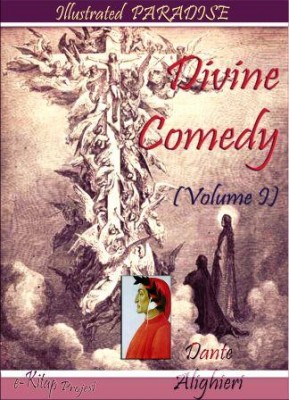His glory, by whose might all things are mov'd,
Pierces the universe, and in one part
Sheds more resplendence, elsewhere less.
In heav'n,
That largeliest of his light partakes, was I,
Witness of things, which to relate again
Surpasseth power of him who comes from thence; For that, so near approaching its desire
Our intellect is to such depth absorb'd,
That memory cannot follow.
Nathless all,
That in my thoughts I of that sacred realm
Could store, shall now be matter of my song.
Benign Apollo! this last labour aid,
And make me such a vessel of thy worth,
As thy own laurel claims of me belov'd.
Thus far hath one of steep Parnassus' brows
Suffic'd me; henceforth there is need of both
For my remaining enterprise Do thou
Enter into my bosom, and there breathe
So, as when Marsyas by thy hand was dragg'd
Forth from his limbs unsheath'd. O power divine!
If thou to me of shine impart so much,
That of that happy realm the shadow'd form
Trac'd in my thoughts I may set forth to view,
Thou shalt behold me of thy favour'd tree
Come to the foot, and crown myself with leaves;
For to that honour thou, and my high theme
Will fit me. If but seldom, mighty Sire!
To grace his triumph gathers thence a wreath
Caesar or bard (more shame for human wills
Deprav'd) joy to the Delphic god must spring
From the Pierian foliage, when one breast
Is with such thirst inspir'd. From a small spark
Great flame hath risen: after me perchance
Others with better voice may pray, and gain
From the Cirrhaean city answer kind.
Through diver passages, the world's bright lamp
Rises to mortals, but through that which joins
Four circles with the threefold cross, in best
Course, and in happiest constellation set
He comes, and to the worldly wax best gives
Its temper and impression. Morning there,
Here eve was by almost such passage made;
And whiteness had o'erspread that hemisphere,
Blackness the other part; when to the left
I saw Beatrice turn'd, and on the sun
Gazing, as never eagle fix'd his ken.
As from the first a second beam is wont
To issue, and reflected upwards rise,
E'en as a pilgrim bent on his return,
So of her act, that through the eyesight pass'd
Into my fancy, mine was form'd; and straight,
Beyond our mortal wont, I fix'd mine eyes
Upon the sun. Much is allowed us there,
That here exceeds our pow'r; thanks to the place
Made for the dwelling of the human kind..

































